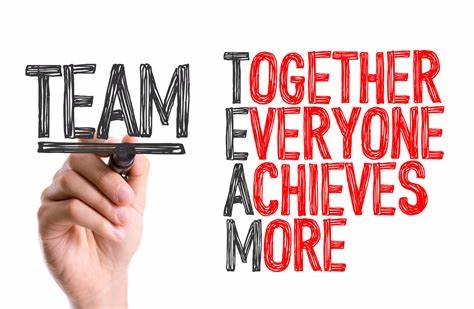Employee empowerment has been defined in many ways but generally means the process of allowing employees to have input and control over their work, and the ability to openly share suggestions and ideas about their work and the organisation as a whole.
Empowered employees are generally seen to be more committed, loyal and conscientious.
Empowerment is closely aligned with encouragement and the building of employee enthusiasm, but can only happen from a bedrock of trust.
Empowerment by its very nature involves some abdication of authority, or at least an adjusting of levels of authority, and with it accountability, and that is only feasible if you have enough (real) trust in the employee or team-member.
A great team leader will develop trust by devoting much time & energy in building honest relationships with their people, and when he or she believes in someone they show it and demonstrate it. Honesty, integrity, and sincerity are the cornerstones on which to develop trust.
Encouragement should be both genuine and frequent, and can’t just be “turned on” when you want something from your people. Actively look for positive things your people are doing, but if you happen to come across something that is not going so well don’t criticise, but rather try to give a little encouragement and pointers in the right direction.
Empowerment means accepting that not everything goes right every time when you give people the power to try, and before long your team will recognise that you mean what you say when you give them that room to try.
Perhaps no more so than in the area of customer service can empowered employees have a direct and measurable impact on a company’s reputation and bottom-line.
The ability of an employee to “break the rules” to satisfy a customer goes a huge way in creating in the customer a feeling of true customer service that ultimately yields much greater customer loyalty, and in the long-term better profits. There is no question that empowered employees take pride and ownership in their jobs when they know that they can exercise independent judgment when necessary.
Empowered employees also feel free to challenge the status quo, and that is critical in today’s fast changing environments and markets; without someone making these challenges companies can become too complacent, doing things the way they’ve always done them, and that can be disastrous.
Establishing a culture where employees feel free to question how things are done and offer new ideas will benefit employees and employers and shareholders. So if empowerment is undoubtedly a “good thing” why does the implementation of empowerment so often fail? There are five main reasons:
1. Proper boundaries are never agreed: it is critical to state clearly just where new authority & accountability boundaries lie
2. New boundaries and empowerment criteria are agreed, but then managers, continue to micro- manage: this is usually due to a lack of trust
3. Second guessing the decisions of employees you have given the authority to make these decisions
4. Managers abdicate all responsibility and accountability for decision making. When staff are blamed or punished for failures, mistakes, and less than optimum results, your employees will lee from employee empowerment.
5. When employees feel under-compensated, under-titled for the responsibilities they take on, under-noticed, under-praised, and under-appreciated, don’t expect results from employee empowerment.
Empowerment is not something a manager bestows on employees, but rather it is a philosophy and a strategy to help people develop talents and skills; this helps employees feel competent, capable, and successful. competent, capable, successful people best serve your organization.

